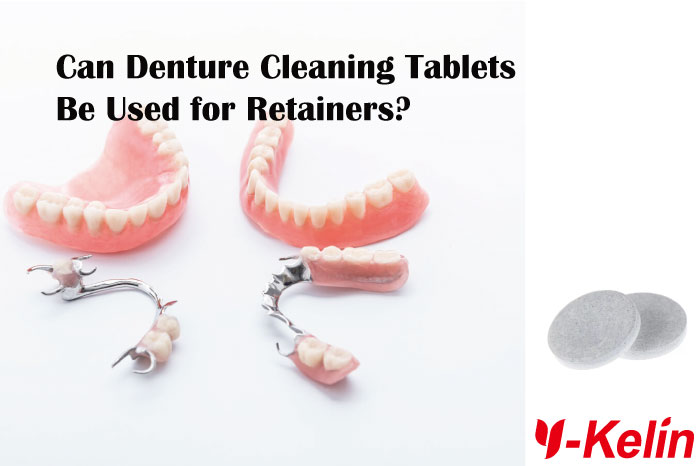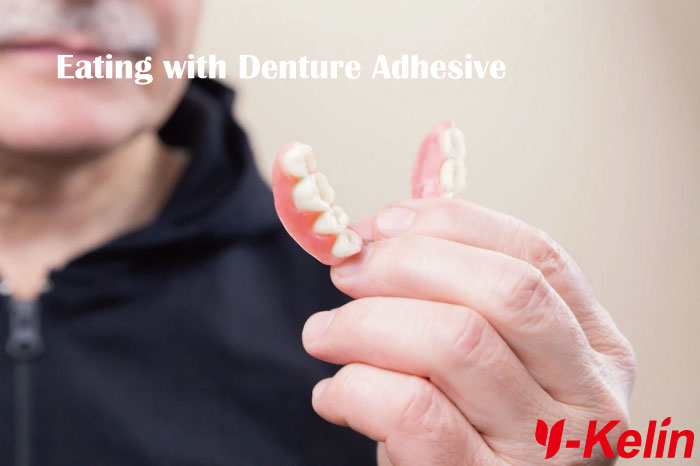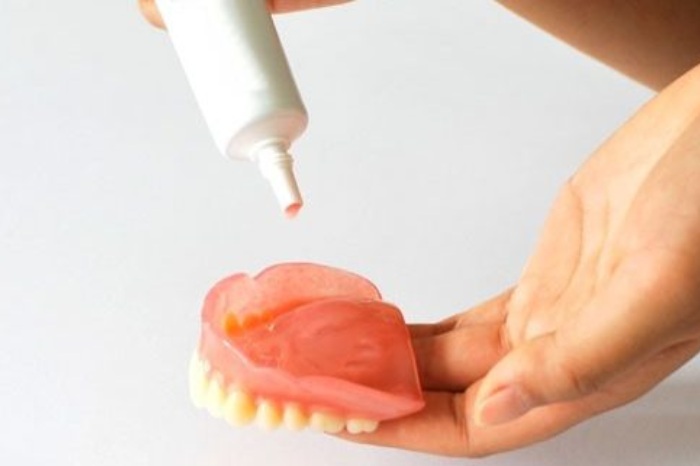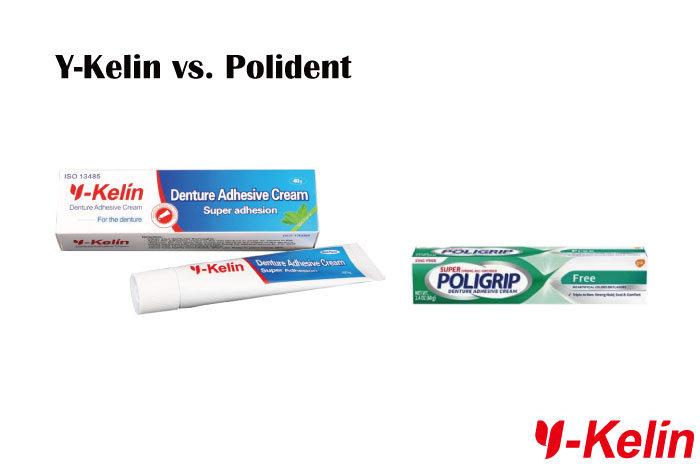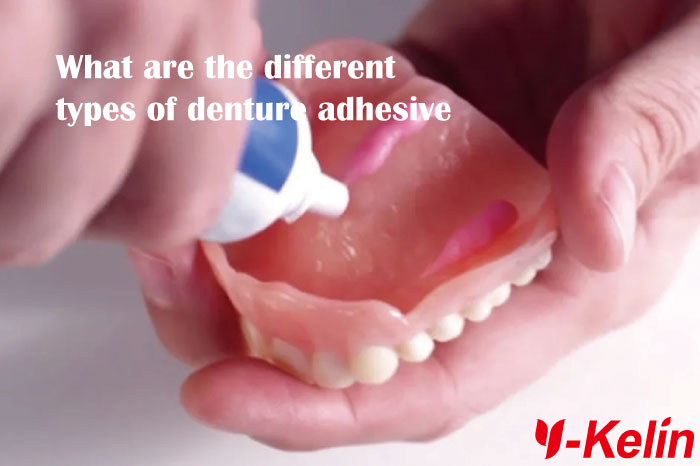
What are the different types of denture adhesive?
Published On:
Denture adhesives are an essential tool for people who wear dentures, helping to improve comfort and stability. Choosing the right one can make a significant difference in your overall denture-wearing experience.
Denture adhesives help keep dentures in place and improve comfort. With various types available, it’s crucial to understand which one suits your needs best.
Transitioning from one type of denture adhesive to another can be confusing. That’s why it’s important to evaluate their different features, benefits, and drawbacks. Let’s explore the types of denture adhesives on the market to see which one is the best fit for you.
What Are Denture Adhesives?
Denture adhesives are products designed to help dentures stay in place. They create a seal between the gums and the dentures, preventing slippage and providing added comfort. The adhesive can also help prevent food from getting trapped under the dentures, which can cause irritation or discomfort.
Denture adhesives are used to help secure dentures, offering comfort and preventing slippage. They create a seal that enhances stability.
Denture adhesives are commonly available in creams, powders, strips, and pads. Each type has its advantages, depending on your personal preferences. It’s essential to know the differences to choose the right one for your needs.
Types of Denture Adhesives
Adhesives for dentures come in a variety of forms. There are creams like Y-Kelin Denture Adhesive Cream and strips like Y-Kelin Denture Adhesive Cusion.
Learn more about : How to Apply Denture Adhesive
Denture Adhesive Cream
Denture creams are among the most popular types of adhesives. They are applied directly to the base of the dentures and offer a strong hold. Creams tend to provide longer-lasting adhesion and comfort but can be messier compared to other types. They also help to create a cushion between the denture and the gum, reducing irritation.
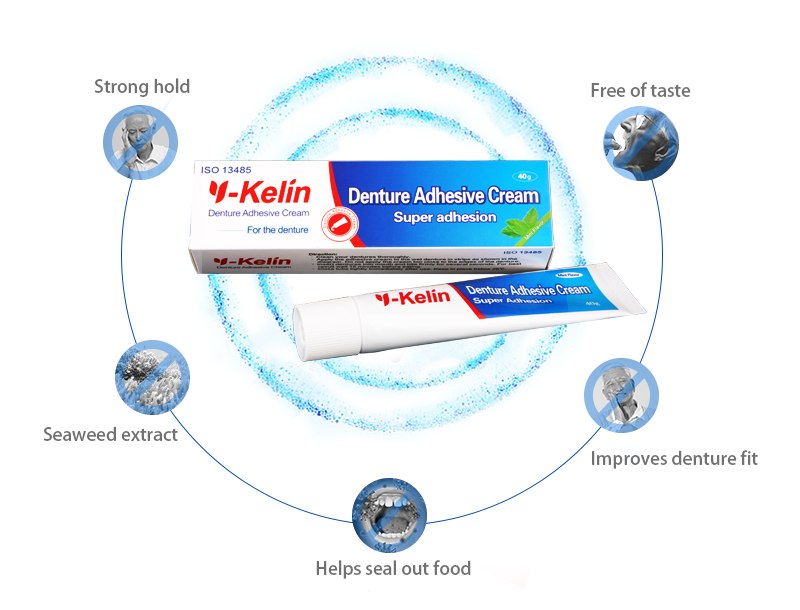
Y-Kelin Denture Adhesive Cream offers a strong, reliable hold for dentures, ensuring comfort and confidence throughout the day. Made with a specially designed formula, it helps keep dentures securely in place, preventing slipping or discomfort.
Ideal for individuals with sensitive gums, this cream provides a smooth and comfortable fit, enhancing your clients’ experience.
With long-lasting performance, Y-Kelin Denture Adhesive Cream meets the needs of both healthcare providers and individuals, ensuring quality and ease for those in need of effective dental care solutions.
How To Use
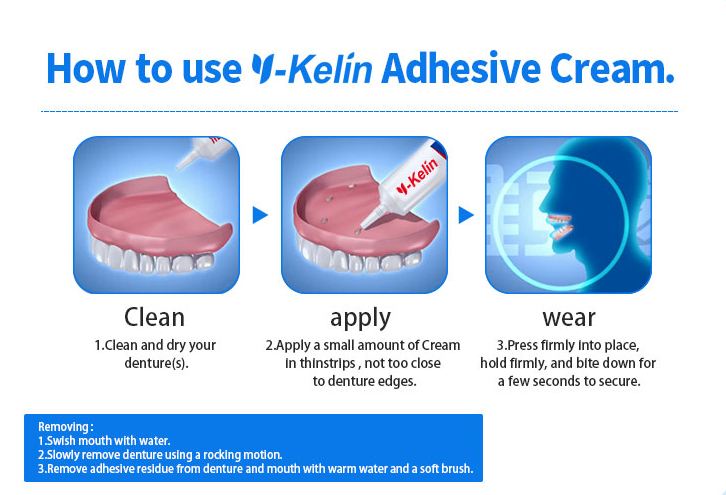
Denture Powders
Powders are another common choice. They tend to be less messy than creams and are easier to apply. Powders form a thin layer between the gums and the dentures, providing a lighter hold. Some users prefer powders because they feel less thick and are easy to remove.
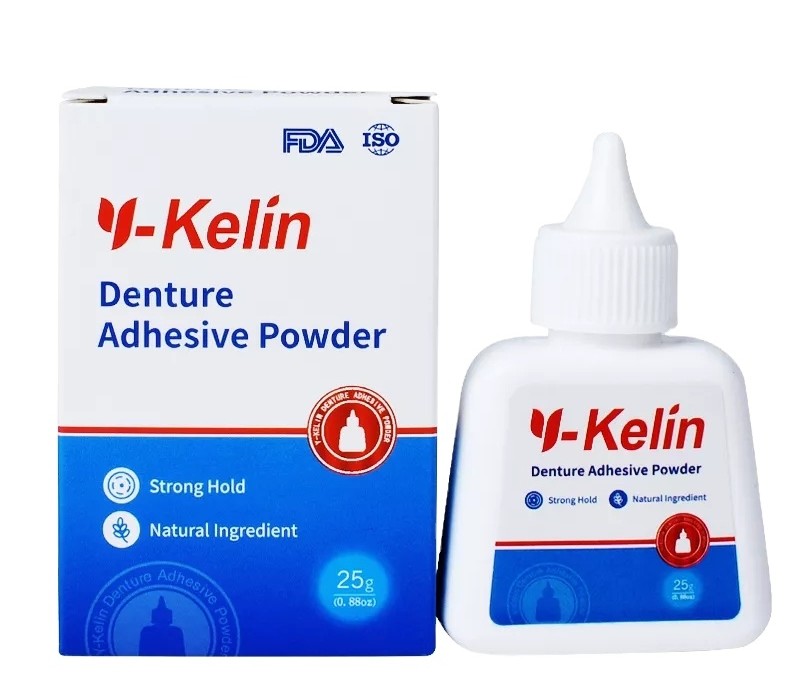
To use denture powder:
- Clean and Dry: Make sure your dentures are clean and dry.
- Sprinkle Powder: Lightly sprinkle a small amount of powder on the underside of the denture.
- Distribute Evenly: Gently shake or tap the denture to spread the powder.
- Insert Denture: Place the denture into your mouth and press it against your gums.
- Adjust if Needed: Reapply if the denture feels loose.
- Clean After Use: Wash your dentures and mouth thoroughly after removing.
Denture powder offers a light hold and may need reapplication during the day.
Denture Strips/Cusions/Pads
Strips and pads are newer types of denture adhesives. They are pre-measured and easy to apply. These adhesives are designed for a lighter hold and are usually more discreet than creams or powders. They are often used for short-term situations or for those with dentures that fit relatively well.
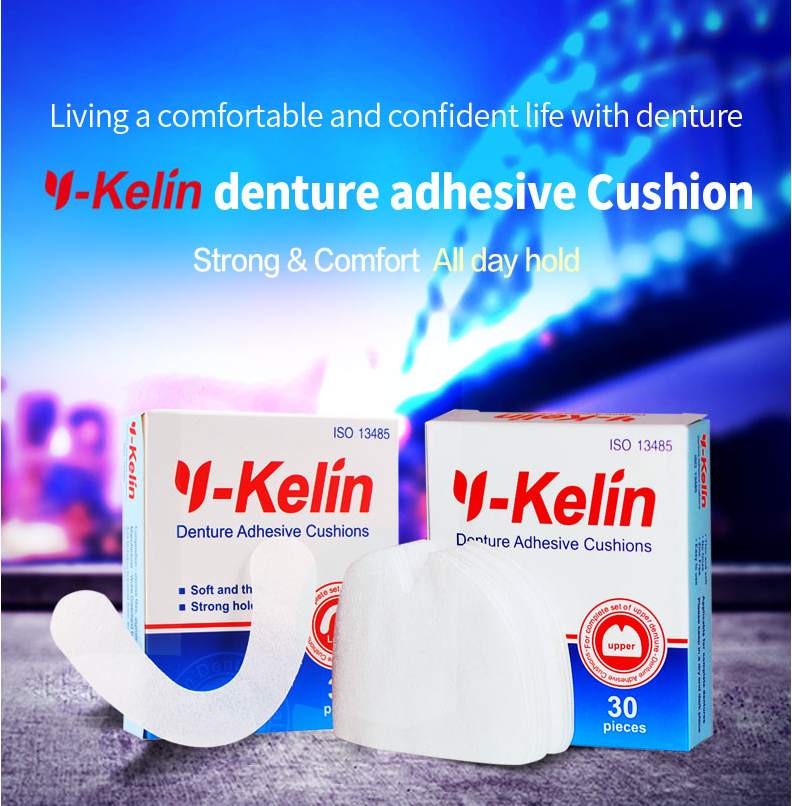
How To Use
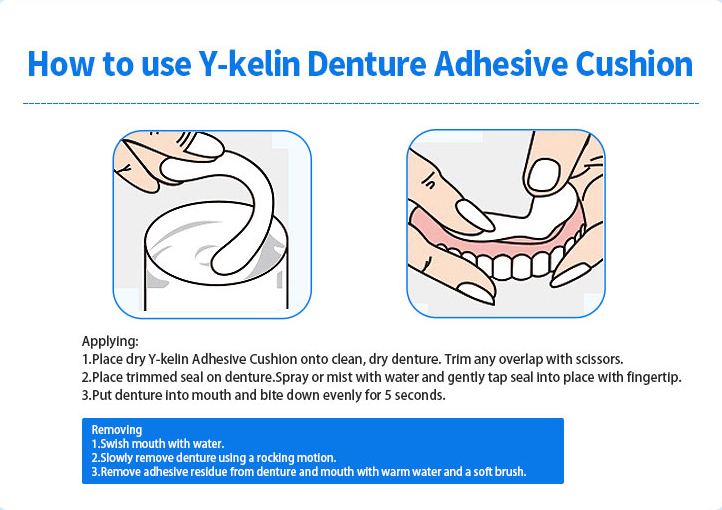
Each type of denture adhesive offers a different level of comfort, hold, and ease of use. Understanding these differences will help you make the right choice.
Pros and Cons of Different Types of Denture Adhesives
When selecting a denture adhesive, it’s essential to weigh the pros and cons of each type. Here’s a breakdown of the benefits and drawbacks of each adhesive:
| Type | Pros | Cons |
|---|---|---|
| Denture Cream | Strong hold, long-lasting, reduces irritation | Can be messy, requires cleaning after use |
| Denture Powder | Easy to apply, less messy, lighter hold than creams | Shorter-lasting hold, may not provide enough grip for loose dentures |
| Denture Strips | Discreet, easy to apply, no mess | May not provide a strong enough hold for all users |
Understanding the pros and cons of each adhesive type can help you make a more informed decision based on your needs.
What Is the Very Best Denture Adhesive?
The best denture adhesive depends on individual needs, such as comfort, hold, and ease of use. Denture creams tend to be the most popular because they provide a strong and long-lasting hold. However, if you prefer a lighter adhesive or something more discreet, powders or strips may be a better fit.
The best denture adhesive provides a strong hold, comfort, and is easy to apply. It’s essential to find one that suits your specific needs.
What Is the Longest Holding Denture Adhesive?
If you need a denture adhesive that lasts all day, you should consider using a denture cream. These adhesives are known for providing the longest-lasting hold. Creams are thicker and create a more secure seal, making them ideal for individuals who need extra support.
Denture creams typically provide the longest hold, offering a strong and secure bond that can last throughout the day.
What Is a Denture Adhesive?
A denture adhesive is a product used to secure dentures to the gums. It helps keep dentures in place and prevents them from slipping or moving, making them more comfortable to wear. Adhesives also prevent food from getting trapped under the dentures, which can cause irritation or discomfort.
Denture adhesives help secure dentures in place, ensuring comfort and stability for users.
What Can You Use Instead of Denture Adhesive?
If you’re looking for alternatives to denture adhesives, some options include denture liners, which provide extra cushion and stability, or dental implants, which offer a more permanent solution. However, these alternatives can be more expensive and require professional assistance.
Denture liners and dental implants are alternatives to adhesives. However, they come with additional costs and require professional care.
How Many Times a Day Should You Apply Denture Adhesive?
Typically, denture adhesive is applied once a day. However, if you find that your dentures are slipping or becoming uncomfortable throughout the day, you may need to reapply the adhesive. It’s important to clean your dentures thoroughly before applying fresh adhesive.
Most people apply denture adhesive once per day, but reapplication may be necessary for added comfort.
Should Dentures Be Dry When Applying Adhesive?
Yes, dentures should be dry when applying adhesive. If the dentures are wet, the adhesive may not stick properly, reducing its effectiveness. Be sure to clean and dry your dentures before applying any adhesive.
Ensure your dentures are dry before applying adhesive to ensure a secure hold.
What Is the Most Effective Denture Adhesive?
The most effective denture adhesive will provide a secure hold, comfort, and ease of use. For many people, denture creams are the most effective option. However, the best adhesive for you will depend on your specific needs and preferences.
The most effective denture adhesive provides a strong, comfortable hold that lasts throughout the day.
What Is the Correct Way to Apply Denture Adhesive?
To apply denture adhesive correctly, clean and dry your dentures first. Then, apply a small amount of adhesive to the base of the denture, focusing on the edges and areas that come into contact with your gums. Be sure not to use too much adhesive, as it can cause excess pressure or irritation.
Apply a small amount of adhesive to the edges of the denture after cleaning and drying it for the best results.
How Do You Keep Dentures in Place with Adhesive?
To keep dentures in place with adhesive, ensure that you’re using the right amount of adhesive and applying it correctly. It’s also important to clean and dry your dentures before each application to ensure a secure hold. If your dentures aren’t staying in place, you may need to try a different type of adhesive.
For a secure hold, apply the correct amount of adhesive and ensure your dentures are clean and dry before use.
Conclusion
Choosing the right denture adhesive is crucial for comfort, stability, and confidence. By considering the different types available, you can make an informed choice that best suits your needs.
Get in Touch with Y-Kelin
Have questions or need more information? Contact us today, and our dedicated team will assist you promptly.


Y-Kelin is a trusted manufacturer of high-quality denture care products, including denture cleaning tablets, adhesive creams, and retainer cleaning solutions, offering customized services for global partners.
